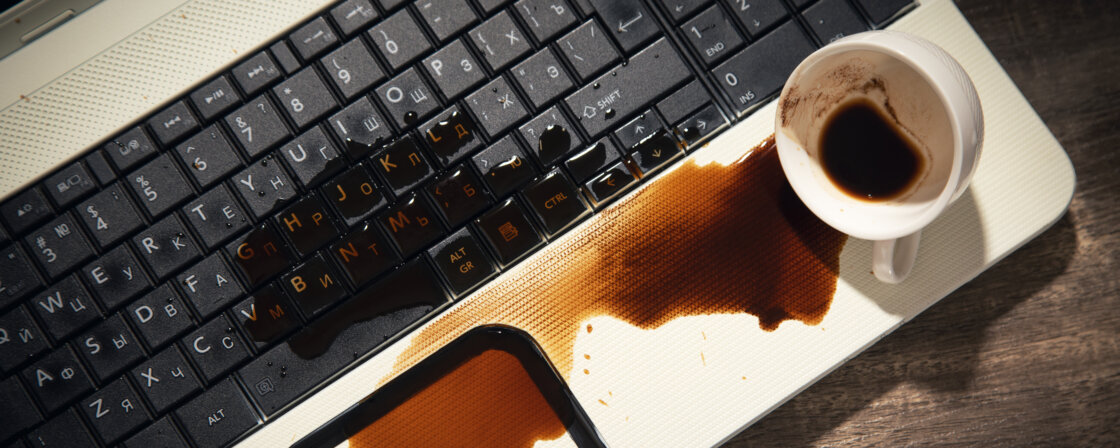Employment Practices Liability Insurance
You may think you don’t need anything like this. You don’t come into contact with money and you don’t drive a car, so what damage can you cause? Don’t be fooled, it’s quite easy. Damage can be caused, for example, by a wrong instruction to a subordinate, spilling coffee on your computer or losing your mobile phone. You can also cause damage by mixing up units or adding a zero to an order. Liability insurance is suitable not only for high-risk professions, but also for regular office positions where damage can occur, for example, through faulty typing or careless handling of equipment. Employment practices liability insurance provides protection in all common situations where damage occurs in connection with the performance of job duties or at the direction of the employer.
Any profession can be insured, whether you are required by law to do so or are just prudent and prudent. In general, insurance is always recommended for those whose occupation involves signing a material liability agreement, you are entrusted with expensive equipment or gadgets, or you may directly affect the health and lives of people or animals.
A crap insurance policy is thus an affordable way for an employee to protect themselves from unexpected expenses associated with minor and more costly mistakes on the job. Workers’ compensation insurance helps cover the consequences of unexpected situations where an employer demands payment for damages, significantly reducing the employee’s financial risk.
Tip for article
Tip: If your employer asks you to sign a material liability agreement, read what it says and what the consequences of signing it could be for you.
The insurance benefit is then usually paid directly by the insurance company to the employer. If you have already paid the claim yourself, the amount can also be transferred to your account. Of course, the insurance cover only applies to the damages that your employer actually wants you to pay for.
If the insurance company refuses to pay, appeal. Sometimes insurance companies just try to see what the client can bear. And if even your appeal doesn’t help, don’t be afraid to get legal help.
From a legal perspective, you need to distinguish between different forms of liability. In employment law, it is primarily the employee’s liability for damage caused by the employer, which applies to cases where a causal link between the performance of work and the occurrence of damage is met. If the injury occurs during the performance of work tasks, the employee may face a financial claim from the employer, and this is where insurance plays its protective role.
Are you solving a similar problem?
Are you dealing with a legal issue regarding the policy?
Resolve your injury problem with the Affordable Advocate team! We’ll assess your chances, design a strategy and prepare a challenge. When necessary, we will file a claim and provide legal representation.
I want to help you solve your problem
- When you order, you know what you will get and how much it will cost.
- We handle everything online or in person at one of our 6 offices.
- We handle 8 out of 10 requests within 2 working days.
- We have specialists for every field of law.
Car insurance gets more expensive
Of course, it’s not necessary to run to the insurance company and think about insurance for every potential claim. It’s worth taking stock of what work equipment you come into contact with, what you’re realistically making decisions about and what you’re responsible for. But this will then also affect the amount of the insurance policy. When arranging insurance, you will usually complete a detailed questionnaire to tell us what your job involves and what you use for work.
For example, people who use a company car at work will pay more for insurance. However, its insurance is not usually included in the basic offer, so you will have to choose a more expensive type of policy.
Liability for damage caused by an employee to a third party
According to the Civil Code, an employer who is liable for damage caused by its employee to a third party may subsequently recover such damage from the employee. In this case, the employer claims against the employee. If you have taken out employer’s liability insurance, this policy will also cover situations where the damage is caused by negligence. However, it is important to pay attention to the exclusions in the policy. The employer’s liability for damage caused by the employee to a third party arises directly from the law and the employer can subsequently claim compensation from the employee within the limits set by the Labour Code.
Employers’ liability insurance is designed to cover situations where an employee causes damage through negligence and the employer makes a financial claim against the employee.
Strict liability also plays a specific role. These are situations where the employer is liable regardless of the fault of the employee, for example in the case of damage caused by a particularly dangerous operation. Although the employee may feel liable in practice, the Labour Code allows recourse against him to be limited to statutory limits.
When is an employee liable for damages?
It is good to remember that you are not liable to your employer for any damage, but certain conditions must be met. These are:
- the occurrence of the damage,
- the damage arises in the course of or in direct connection with the performance of the job,
- there is a causal link between the breach of work duties and the damage.
If any of the prerequisites are missing, you are not liable for damages.
The amount of compensation for damages caused by an employee is always assessed on an individual basis, based on the value of the damage and the statutory limits for negligent conduct.
Employees are protected under the Labour Code in that they are liable for a maximum of 4.5 times their average gross monthly earnings before the damage was caused. In practice, this means that, for example, with a monthly wage of CZK 36,000, you may be required to pay up to CZK 156,000 in damages. As we have already stated above, the condition for the application of the statutory limit is that the damage is caused by negligence, i.e. by omission of work duties. This can occur, for example, if you do not park your company car overnight in the company garage as you are instructed to do, but leave it parked outside.
Of course, the situation is completely different if the employee’s intent is intentional. In such a case, he or she is liable to pay the employer for actual damages, in the amount actually incurred by the employer. The same consequence arises if the damage was caused while drunk or under the influence of addictive substances.
However, only the first case, i.e. damage caused negligently, can be insured. Of course, no insurance company will insure you for intentional acts.
If your employer has a claim for compensation against you, it may only set it off against the employee’s claim for wages, salary, remuneration under the agreement and compensation for wages or salary, and only make deductions from wages on the basis of the agreement on deductions from wages.
A completely separate area is the liability of an employee for damage to a company vehicle. For example, if a driver causes an accident through negligence, the employer can claim damages up to a statutory limit. However, if intent or drink-driving is proven, compensation is payable in full. Even in these cases, it can be useful to have appropriate professional indemnity insurance in place.
Tip for article
Tip: Is your employer asking you for compensation even though it has no right to do so? Want to sue and not sure if you will win? We will assess your chances of success in court and suggest a solution that will lead to the desired outcome.
Self-insured is not enough
Of course, we don’t just have to cause damage to our employer or a third party. What if we use our own computer or other personal equipment at work and destroy it by careless handling?
A normal liability policy won’t cover you for that either. Rather, you should try to prevent such situations and not use your own tools and equipment at work. If your employer forces you to do so, you can point out exactly such situations.
Entrepreneurs also have their own insurance policy
If you are an entrepreneur, or self-employed, then you should strongly consider taking out an insurance policy. With almost any trade, you can imagine damage being caused – a hairdresser can have her hair dye on a customer’s designer suit or handbag, a plumber can drop his sikes in the middle of a new bathtub. You don’t even have to consider your gainful activity explicitly as a business. If you walk dogs for a living in your spare time, you’ll appreciate an insurance policy in case an expensive breed of dog, such as a Tibetan Mastiff, irretrievably escapes.
So, if you cause damage to a customer’s property in any way, business liability insurance covers you against financial damages. The price of insurance is very individual, there are insurance companies that will insure almost any business and the price of the policy is based on the limit of the potential damage. But elsewhere, they look very closely at what you do and how you do it.
If you employ at least one employee as a business, it is compulsory for you to have legal liability insurance. This then covers the costs incurred by the employee due to an occupational accident or illness.
Tip for article
Tip: Are you planning to start a business and want to set up an LLC? Setting up an LLC is a complicated and time-consuming procedure due to legislation and official processes. If you need to start your business as soon as possible, we will set up a customized limited liability company (Ltd.) for you.
Obligation to take out insurance
In some professions, it is a legal requirement to take out employers’ liability insurance, for example in professions with a high level of risk or responsibility for other people’s property or health. However, regardless of the legal obligations, any employer may have a claim against you for workers’ compensation, which they can claim, particularly if your policy fails to cover the loss. Choosing the right insurance is therefore key to covering the amount of compensation for damages caused by the employee.
This includes:
- medical professions such as GPs, vets, dentists etc.
- legal and economic professions – lawyer, notary, tax advisor, auditor
- other professions: aircraft operator, inland waterway vessel operator, operator of a nuclear installation, commissioner of a clinical trial of a medical device or medicine.
However, it always depends on whether you work as an employee, in which case your employer should be legally insured, or whether you are self-employed and the obligation applies directly to you.
Beware of exclusions
Be careful when signing an insurance contract and read everything properly. Especially what is written in smaller print at the end. You may find exclusions that make the policy not apply in full. Exclusions typically relate to intentional acts that caused the damage or drunkenness. However, you may also be unpleasantly surprised by exclusions related to misdirection during installation, repair, alteration and construction work, or related to the provision of bulk data processing and internet services.
Despite some partial disadvantages, professional indemnity insurance is a very useful product that can save you not only valuable money, but also the nerves, stress and time associated with dealing with compensation.
Tip for article
Do you want to change insurance companies because of unsatisfactory conditions? Or have you discovered an offer that is much better? Read on to find out when you can terminate your insurance policy.
Summary
Employee’s liability insurance, known as a “crap policy,” covers damages caused by an employee while on the job, up to a statutory limit of liability of 4.5 times the employee’s gross wages. It most often covers damages caused by negligence, such as the loss of work equipment or an accident involving a company vehicle. However, it does not cover damage caused by intent, intoxication or gross misconduct. Insurance is useful for any employee who wants to avoid unexpected financial problems caused by damage to their employer’s property.
Frequently Asked Questions
What is the employee's liability for damage caused to the employer?
Liability of an employee for damage caused to the employer arises if the employee breaches a duty in the performance of his/her work tasks or in direct connection therewith and thereby causes damage to the employer. The Labour Code protects employees by limiting the employer’s claim for negligent damage to a maximum of 4.5 times the employee’s average monthly earnings. However, this limit does not apply to intentional acts or damage caused by alcohol.
How does strict liability differ from ordinary liability in employment law?
Strict liability means that it is not necessary to examine the fault of the employee – typically applied by the employer, for example, in the case of damage caused by the employee to a third party. In such a case, the employer is liable regardless of whether the employee acted negligently. However, it may subsequently claim damages from the employee to the extent provided for in the Labour Code.
How does employee liability for damage to a company car work?
If an employee causes an accident with a company car, he or she is liable to the employer for the damage caused. In the case of negligence, a limit of 4.5 times the salary applies, but in the case of intentional acts or drink-driving, liability is not limited and the employee pays the full amount of the damage. It is therefore advisable to take out liability insurance which also covers driving a company car.
What does professional liability include and when is it mandatory?
Professional liability is a professional liability that covers damage caused in the course of a particular activity. For some professions, such as doctors, veterinarians, lawyers or auditors, insurance against this liability is even compulsory by law. For other professions, however, it is a voluntary insurance that can protect employees and business owners from the financial consequences of mistakes at work.
What are the main differences between liability for damages in employment law and civil law?
Liability for damages in employment law applies exclusively to the relationship between the employee and the employer and has its own specific rules (e.g. limit of compensation in case of negligence). In civil law, liability is assessed in general, i.e. also outside the employment relationship. If an employee causes damage to a third party, the employer is strictly liable for that damage and can only then seek recourse against the employee.




